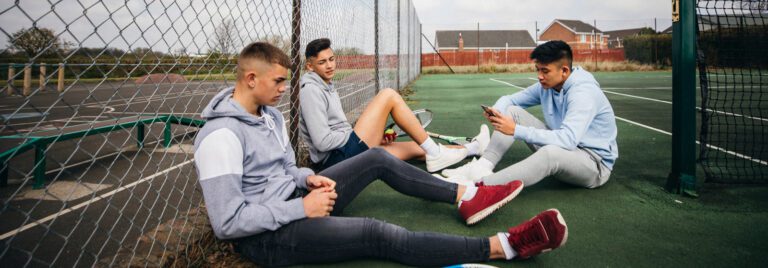When you’re young, life can feel pretty full-on on a regular basis. Some days it can feel like you’re juggling flaming torches, and that can get pretty stressful and exhausting.
Let’s be real – you’re going to make some mistakes as you go. So, how do you get back up when you get knocked down?
With a little thing called resilience.
What is resilience?
We’re lucky to be living in a time where we’ve moved past telling each other to ‘toughen up’. The reality is that avoiding problems and pushing away our feelings doesn’t work.
Guess what – having feelings is not a sign of weakness, it’s your superpower. We’ve all got emotional skills that make it obvious when things in our lives are not okay so we can take action to make things better. Getting in tune with your feelings, and reflecting on the hard stuff makes you courageous.
Resilience is about being able to cope with the hard stuff without letting it completely beat us down. Sometimes we have to adjust our path and sometimes we have to face the tough things with baby steps.
Why is it important?
While we can’t change the risk factors, we can boost our strengths.
By boosting your strengths, you’ll find yourself
- Managing stress better
- Feeling more in control and less overwhelmed
- Focusing on what is truly important
So how do you become more resilient?
The great thing about resilience is that it can be taught!
So what’s involved?
You can learn resilience by building your knowledge and understanding in these key areas:
-
Emotional wellbeing:
Recognising feelings and how to work with them, not against them
-
Social wellbeing:
How to remain connected to others, have strong relationships and avoid feelings of loneliness.
-
Mental wellbeing:
This means noticing how our minds tell us stories about the world around us, whether these thoughts are helpful or unhelpful, and how you can change them
-
Physical health:
Your brain and body are one system. Looking after your physical health through sleep, nutrition, and exercise, are super important
-
Brainpower:
This involves getting the right balance between rest, stimulation, thinking, mindfulness, and challenging ourselves
-
Life skills:
Learning more about problem-solving, assertiveness, organisational skills, improving attention, study habits, budgeting – anything you are struggling with.
Building resilience takes time, but believe in yourself and stay in tune with your feelings. Like most things, learning resilience can feel hard when you are taking small steps and adjusting. It can be hard to see the progress you are making, but it all starts with a first step, so why not give it a go.




